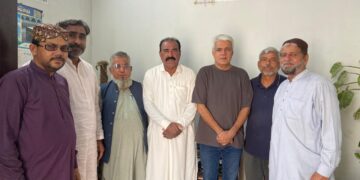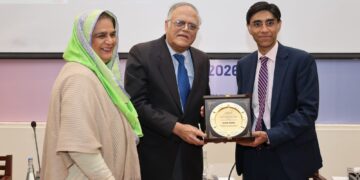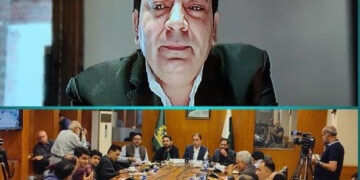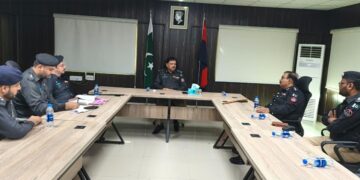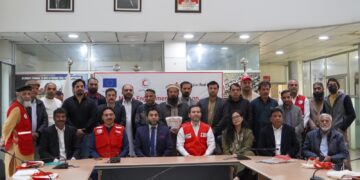By Dr. Gholam Mujtaba, MS, MD, Ed.D.
USA : Pakistan’s political landscape has long been fraught with paradoxes that confound the notions of honesty and corruption. The phenomenon where politicians are glorified while in office and vilified upon their exit has become a defining feature of the country’s governance. This oscillation raises significant questions about the standards of honesty and the criteria for evaluating public officials in Pakistan.
The Rise and Fall of Political Icons
Throughout Pakistan’s history, leaders who ascended to power were often hailed as paragons of integrity. Controlled media and loyalists play a significant role in this portrayal. However, upon their removal, these individuals are swiftly accused of corruption—often through non-ceremonial means such as coups, disqualifications, or political rivalries. A pattern emerges where their successors unveil allegations and evidence of their misconduct, shaping public opinion against them. Yet, the newcomers themselves are not immune to this cycle.
Case Studies of Political Dynasties
1 Nawaz Sharif: A three-time Prime Minister, Nawaz Sharif’s political career epitomizes this dichotomy. Once celebrated for his developmental initiatives, his tenure ended with allegations of financial impropriety, highlighted by the Panama Papers revelations. These accusations led to his disqualification by the Supreme Court in 2017, and his subsequent exile added to the corruption narrative. Despite this, Sharif remains a significant political figure, with his party (PML-N) continuing to wield influence.
2 Asif Ali Zardari: The President and leader of the Pakistan Peoples Party (PPP) faced persistent accusations of corruption, including a suspended sentence from a Swiss court for money laundering. Dubbed “Mr. 10 Percent” by detractors, Zardari’s tenure was marred by controversies that overshadowed his efforts at reconciliation and decentralization.
3 Dynastic Politics: Families like the Bhuttos and the Sharifs have dominated Pakistan’s political landscape, creating a legacy of inherited power. While they bring political continuity, they also perpetuate cycles of accusation and exoneration driven by changing political allegiances and judicial actions.
Standards of Honesty and Criteria of Evaluation
Controlled Narratives
The media, often under governmental or influential control, plays a pivotal role in shaping the perception of political figures. Leaders are celebrated for their achievements while in power, but their shortcomings are amplified once they lose authority.
Legal and Judicial Inconsistencies
The judicial system’s role in disqualifying leaders and exposing corruption is significant but inconsistent. High-profile cases, such as those against Sharif and Zardari, often result in prolonged legal battles that yield mixed outcomes. Political interference and selective accountability erode the judiciary’s credibility.
Political Rivalries
Accusations of corruption are frequently tools of political maneuvering. Successors aim to discredit their predecessors to consolidate their own power, making corruption revelations more about political vendettas than genuine accountability.
The Role of International Scrutiny
International courts and organizations have occasionally intervened in Pakistan’s corruption cases. For instance, the Swiss court’s judgment against Zardari highlighted how foreign jurisdictions can clarify cases that remain mired in local politics.
The Way Forward: Establishing Credible Standards
1 Independent Accountability Mechanisms: Establishing an autonomous body free from political influence is crucial for impartial investigations into corruption.
2 Judicial Reforms: Strengthening the judiciary’s independence and streamlining processes can ensure timely and fair verdicts.
3 Media Ethics: Encouraging unbiased and investigative journalism can help dispel propaganda and present facts objectively.
4 Civic Education: Educating the populace about governance and accountability can foster a more discerning electorate that demands higher standards of honesty.
Conclusion
Pakistan’s cycle of glorifying leaders in office and condemning them upon their exit stems from a confluence of controlled narratives, judicial inconsistencies, and political rivalries. Breaking this cycle requires systemic reforms prioritising accountability, transparency, and the rule of law. Only then can the nation move towards a more stable and credible political framework, free from the shadow of perpetual corruption allegations.
Advertisements








